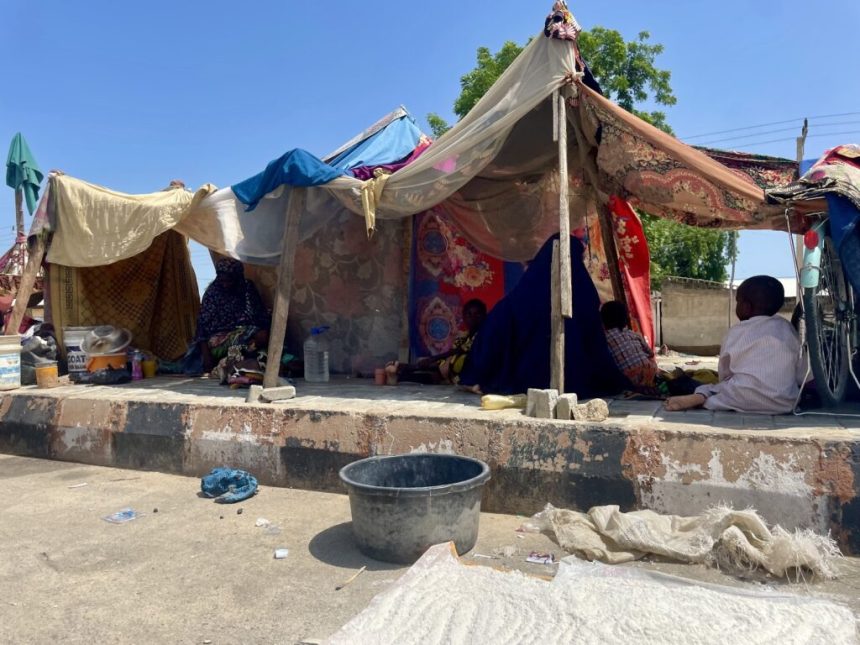Following the devastating floods in Maiduguri and Jere, Borno State, many displaced residents have resorted to setting up makeshift tents for shelter after the government shut down some emergency camps.
The floods, caused by the collapse of the Alau Dam spillway on November 10, resulted in extensive destruction, displacing at least 30,000 households and affecting around 600,000 people across the affected cities, according to Dr. Usman Tar, the state Commissioner for Information and Internal Security.
Initially, the state government established several camps to accommodate those displaced. However, as water levels began to recede, the authorities closed some camps, urging residents to return home. Many survivors have found their homes uninhabitable and have thus erected temporary shelters on dry land.
READ ALSO: Floods Claim Seven Lives in Jigawa and Kebbi States
The government clarified that camps operating in schools were closed to avoid disrupting the school calendar and learning activities. Displaced individuals have set up tents in areas like Muna, Gambarou, Custom, and Old Maiduguri, continuing to seek refuge.

Malam Yusuf Aliyu, a 60-year-old flood victim, shared his experience of pitching a tent on the road at 505 Housing Estate. “I lived in this neighbourhood since I was a child and have never seen a disaster like this,” he lamented. He also expressed concerns about the structural integrity of nearby buildings, many of which are severely cracked and at risk of collapse.
Another survivor, Babagana Jibrin, who had been staying at a government camp before it was closed, stated, “We were given cash and food to return home and wait for a relief committee to assess my collapsed house. I don’t have anywhere to go now. That’s why I set up tents.”
Women like Iya Baba Alasan and her seven children have also sought refuge in makeshift shelters and mosques. “We are homeless. The majority of the women you see on this street are now sleeping inside that mosque, and we all cook in the open,” she said, describing the challenging conditions they face.
READ ALSO: UN Mobilizes $6 Million for Borno Flood Victims Following Alau Dam Collapse
In the flood-affected areas, many buildings have either collapsed or suffered severe damage, leaving residents reluctant to sleep inside even the relatively intact structures. Malam Usman Hassan, whose home sustained minimal damage, noted, “We couldn’t risk sleeping inside because it is too wet and cold for children, and the walls might collapse.”
Despite the state’s efforts, including the establishment of a relief committee tasked with distributing packages to flood victims, the scale of assistance needed appears overwhelming. Governor Babagana Umara Zulum recently inaugurated a 35-member committee to address the urgent needs of the affected population.
In addition, the Borno State government has reported 40 suspected cases of cholera, with two confirmed, following the recent floods. The Commissioner for Health, Prof. Baba Mallam Gana, emphasized the critical role of vaccinations in saving lives, particularly in flood-prone areas.
UNICEF’s Chief of Maiduguri Field Office, Christina Maya-Alfirev, warned of potential disease outbreaks, underscoring the importance of vaccination to prevent further harm from cholera and measles as floodwaters recede.



